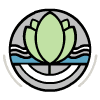It's that time again: flowers poke through the dirt and bloom, trees start sprouting leaves and blossoms, the days are sunnier -- and a lot of us are coughing, sneezing, and sniffling through our days. There's got to be a better way than suffering or taking medicine that makes us groggy or cranky, right? Well, there is! Ayurvedic tradition offers natural remedies that can help you get through the season.

Did you know? According to the Centers for Disease Control and Prevention (CDC), "Climate change will potentially lead to both higher pollen concentrations and longer pollen seasons, causing more people to suffer more health effects from pollen and other allergens."1
In other words, this problem is probably going to get worse before it gets better. It's better to understand what herbal remedies work for you now than later when you may feel worse.
Some of the best herbs to stifle seasonal allergies are2:
- Chitrak is used to reduce inflammation, especially in bronchitis and chronic sinusitis. It can also help reduce skin inflammation.
- Guggulu is another remedy praised for its anti-inflammatory properties, particularly for skin irritations due to allergies.
- Punarnava contains properties that soothe and strengthen lungs while acting as an antihistamine.
- Triphala is often used to relieve breathing difficulties, runny nose, cough, and sore throat.
- Tulsi fights off stress and allergic inflammation by enhancing immunity and clearing respiratory and nasal symptoms of seasonal allergies.
-
Turmeric can help fight allergy attacks by reducing swelling and irritation caused by allergies.

You can also make small changes to your lifestyle every spring to help counteract the effects of excess pollen in the air:
- Drink warm water when you first wake up in the morning.
- Massage your skin with warm organic sesame oil, then rinse off in a hot shower.
- Apply a few drops of Naysa Oil to your nasal passages.
- Exercise first thing in the morning, if possible, to improve clarity and energy.
“Instead of thinking this is something we have to cope with, the biggest gift of Ayurveda is that it provides wisdom on how to understand what’s happening outside, how it’s impacting you within, and how to form a relationship with it.” --Indu Arora, author of SOMA: 100 Heritage Recipes for Self-Care.
Ayurved Marketplace products are not intended to diagnose, treat, cure, or prevent any disease.
Related Blogs
Bitter Melon to Support Wellness
Resources
1"Allergens and Pollen." Centers for Disease Control and Prevention. Last reviewed 8/21/20. Accessed 3/21/23. https://www.cdc.gov/climateandhealth/effects/allergen.htm
2"Spring Guide." Banyan Botanicals. Updated 2023. Accessed 3/21/23. https://www.banyanbotanicals.com/info/ayurvedic-living/living-ayurveda/seasonal-guides/spring-guide/









